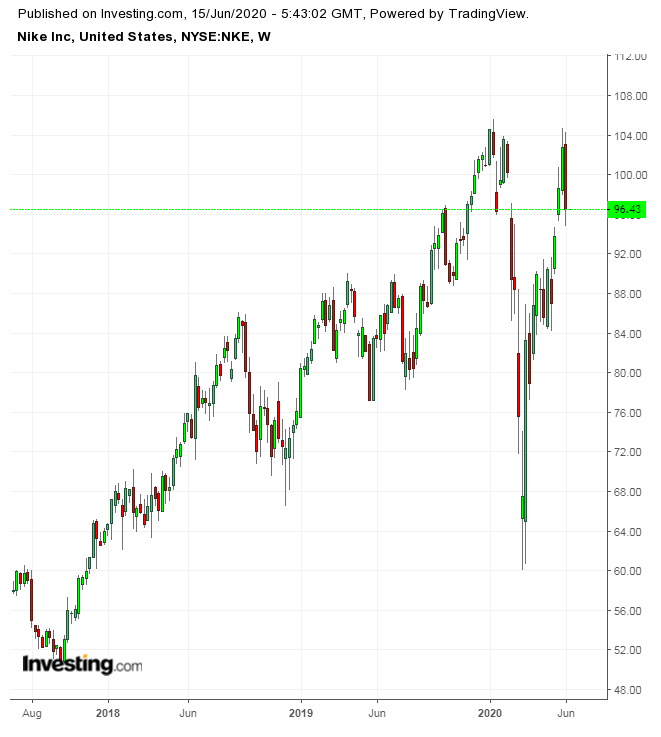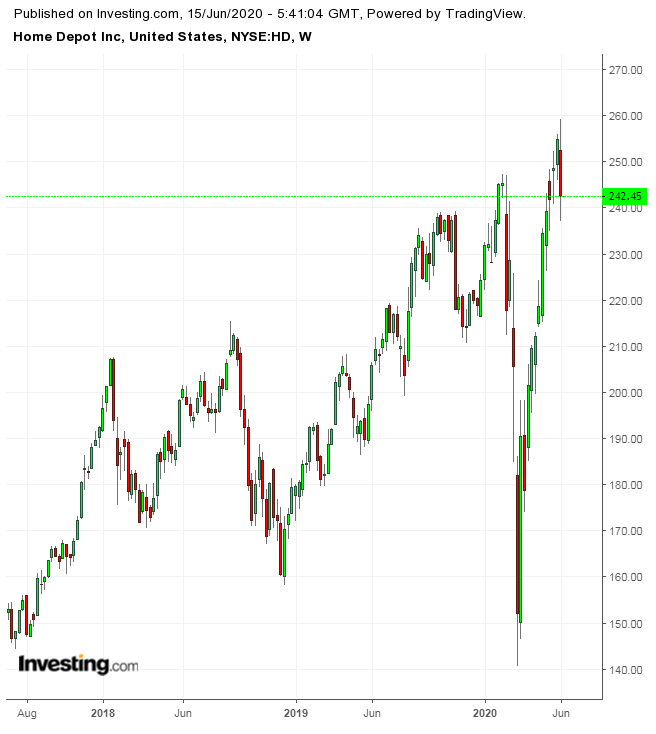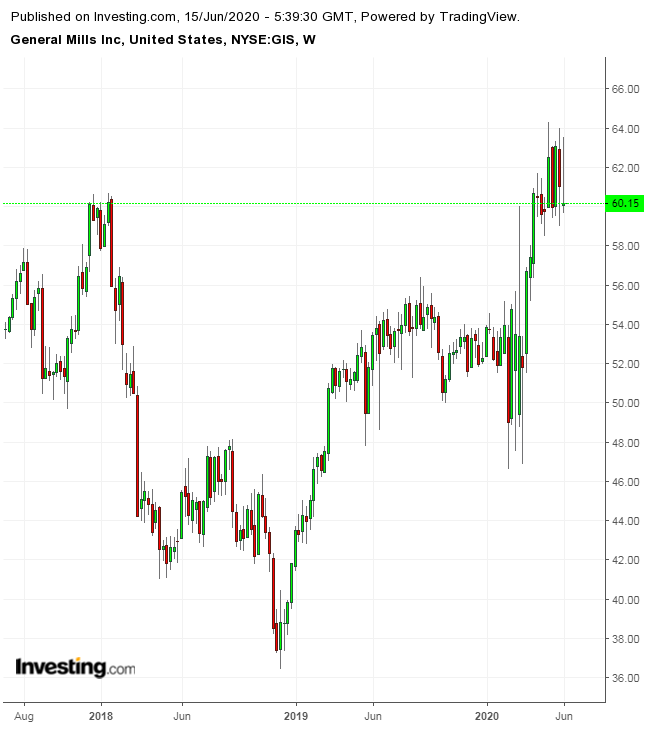Once again, pressure on equity markets is building. A broad array of analysts believe the rebound since the March 23 low is now on shaky foundations. Additional risks adding to concerns include the US economy which is in its worst shape in a generation, together with many states currently bracing for a second wave of the coronavirus pandemic.
Investors saw these fears play out on Thursday when the S&P 500 plunged 6% during the day and almost $2 trillion of equity value was erased. Cyclical stock selling was especially intense, including shares of airlines, energy producers and banks—the typical equity bets on a quick economic recovery.
While the slump is still small compared to the advance that lifted the S&P 500 by 45% since late March, it nonetheless highlights the vulnerability of the current rally. In this uncertain environment, a big challenge for investors remains: finding stocks that are less sensitive to daily market gyrations, and which can be bought and held over the long-term.
Building on that theme, here's our short list: three stocks less sensitive to economic cycles that are also strongly defensive in nature.
1. Nike
Sportswear giant Nike (NYSE:NKE) is a great buy-and-hold candidate in the event of a second major market sell-off triggered by COVID-19 fears. The company is in a strong financial position and able to endure a weak period.

It ended the previous quarter with $3.2 billion in cash. The Beaverton, Oregon-based company has just over $6 billion in long-term debt and operating lease obligations on its books and isn't facing significant debt maturities until 2023. Nike can free up additional liquidity if needed by halting share buybacks—it spent $957 million on them in the most recent quarter.
Nike’s brand strength and the resilience of its business model was evident from the company’s successful execution of its e-commerce strategy during the pandemic when most of its stores were closed. Chief Executive Officer John Donahoe told analysts in late March that the company’s e-commerce operations remain “in growth mode,” despite the demand shock presented by the coronavirus outbreak.
“At a time when people were confined to their homes, we moved swiftly to leverage our digital app ecosystem and Nike expert trainer network,” he said, by accelerating app sign-ups and engagement for Nike Training Club workouts.
Trading at $96.43, Nike shares have rebounded strongly from the March low of $60.58 in the post pandemic market rally. If the stock weakens in a broad-based sell-off, investors could find a good entry-point for acquiring shares.
2. Home Depot
Home improvement companies have outperformed the broader market this year, benefiting from the the government's stay-at-home order which caused many Americans to put more money into home improvement during the quarantine.
Analysts expect this trend to continue. It's predicted that more people will move out of big cities and head to the less crowded suburbs because of the COVID-19 crisis. De-urbanization will be good for home improvement retailers, according to a recent note by Bank of America’s equity and quant strategist Savita Subramanian.

Just before the deadly pandemic hit, Home Depot (NYSE:HD) was already being rewarded for its $11-billion spending effort which modernized the company’s stores, upgraded digital options and enhanced offerings for its key trade customers. Armed with these upgrades, there is a good chance that Home Depot’s same-store sales will revive quickly in the post-crisis era.
Sales from Home Depot’s digital platforms grew by about 80% in the first quarter as people favored online shopping over in-person browsing during the lockdowns. As well, Home Depot is one of the retailers best-positioned to survive the current recession, making it a strong defensive candidate to buy when the next price correction comes.
Shares closed on Friday at $242.45 after falling about 6% during the past trading week. Even after Thursday’s market plunge, the stock is still up 72% from its March low.
3. General Mills
Consumer staples are classic defensive plays since they're less tethered to the economic cycle. That's why we like General Mills (NYSE:GIS), the maker of such well-known household brands as Cheerios cereals, Yoplait yogurt and Nature Valley granola bars.

Trading at $60.15, the stock is up 28% since its March lows and is unlikely to show much volatility even if the market takes plunges again. Another benefit to owning GIS stock is that investors receive a dividend that yields a very decent 3.24%. That's a good return which happnes to also be reliable—General Mills has paid uninterrupted dividends for 120 years.
In recent years, General Mills has tried to diversify its revenue base in order to spur additional growth. The company acquired Blue Buffalo Pet Products in 2018, its largest deal in 18 years.
The acquisition added a new line of business to the company’s portfolio, at a time when its traditional food unit was under pressure from consumers rapidly changing their eating habits, looking for fresher, greener and less sugary foods.
General Mills shares are likely to underperform in a bull market. However, it's a defensive name which will outperform during bear markets.
